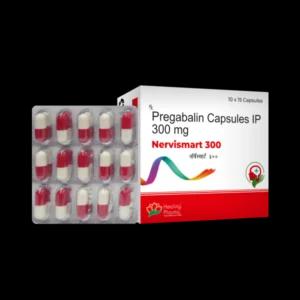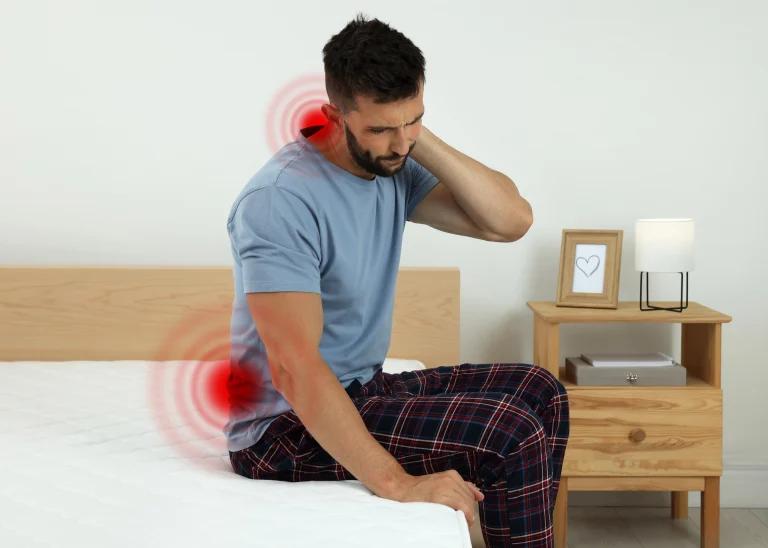Pregabalin and gabapentin are two popular anticonvulsant medications used to treat a variety of neurological conditions, including epilepsy, nerve pain, and anxiety disorders. While these two drugs share some similarities in their mechanisms of action and uses, and both belong to the same class of medicine, gabapentinoids, they also have significant differences. In this article, we will explore the key distinctions between pregabalin and gabapentin, looking into their pharmacological properties, uses, and comparative effectiveness.
Pregabalin
Pregabalin, marketed under the brand name Lyrica, is structurally similar to the brain neurotransmitter gamma-aminobutyric acid (GABA). It was first approved by the U.S. Food and Drug Administration (FDA) in 2004 for the treatment of neuropathic pain associated with diabetic peripheral neuropathy, postherpetic neuralgia, and spinal cord injury. Pregabalin has since been approved for the management of fibromyalgia, partial-onset seizures, and generalized anxiety disorder.
Gabapentin
Gabapentin, marketed under the brand name Neurontin, is another anticonvulsant medication that was first approved by the FDA in 1993 for the treatment of partial-onset seizures in adults. Over the years, gabapentin’s uses have expanded to include the management of neuropathic pain and certain psychiatric disorders.
Comparing pregabalin and gabapentin
Now that we have a better understanding of the individual characteristics of pregabalin and gabapentin, let’s delve into the key differences between these two anticonvulsant medications.
Potency and dosing
One of the primary differences between pregabalin and gabapentin is their relative potency and the corresponding dosing requirements. Pregabalin is generally considered to be more potent than gabapentin, binding to calcium channels in the central nervous system (CNS) with greater strength. This means a lower dose of pregabalin can be given to patients compared to gabapentin.
The typical daily dose of pregabalin ranges from 150 mg to 600 mg, two to three times a day, while the typical daily dose of gabapentin ranges from 900 mg to 3,600 mg, also divided into multiple doses. This difference in dosing may make it easier for people to take pregabalin.
Bioavailability and pharmacokinetics
The ability of a drug to be absorbed by the body is known as bioavailability, how a drug moves through the body is known as pharmacokinetics. Both these factors are important when comparing drugs.
Pregabalin has a bioavailability of around 90% compared to gabapentin ranging from 27% to 60%. This difference in bioavailability can change how effective a drug is.
Additionally, the pharmacokinetic profiles of these two medications differ. Pregabalin is more rapidly absorbed than gabapentin, which may be an important consideration for acute pain or seizures.
Uses
While both pregabalin and gabapentin are approved for the treatment of partial seizures and chronic pain, they differ for other uses. Pregabalin is approved for the management of neuropathic pain associated with diabetic peripheral neuropathy (nerve damage due to diabetes), postherpetic neuralgia (nerve pain caused by shingles), and spinal cord injury, as well as for the treatment of fibromyalgia and generalized anxiety disorder. On the other hand, gabapentin is primarily used for the management of neuropathic pain conditions.
Side effect profiles
Both pregabalin and gabapentin are generally well-tolerated, with the most common side effects being drowsiness, sedation, dizziness, dry mouth and swelling (edema). However, there may be some slight differences in their adverse events profiles. For instance, pregabalin has a slightly higher incidence of weight gain, while gabapentin can cause respiratory depression.
Pregabalin has a higher potential for abuse and dependence compared to gabapentin, which is an important factor to consider, particularly in the context of the ongoing opioid epidemic and the need for responsible prescribing practices.
Choosing between pregabalin and gabapentin
When it comes to selecting between pregabalin and gabapentin as treatment options, healthcare providers must carefully consider the individual’s medical history, the specific condition being treated, and the potential benefits and risks of each medication.
In general, the choice between pregabalin and gabapentin may be influenced by factors such as the patient’s response to previous treatments, the severity of the condition or the patient’s preference for a particular dosing regime. Also, the presence of other health conditions, such as obesity or a history of substance abuse, may also guide the healthcare provider’s decision.
Abuse and dependence
As mentioned earlier, pregabalin has a higher potential for abuse and dependence compared to gabapentin. Pregabalin is classed as a controlled substance but gabapentin is not. This is due to its ability to produce euphoric effects, particularly when taken in high doses or in combination with other substances. Healthcare providers must prescribe pregabalin with caution especially in patients with a history of substance abuse or addiction.
Withdrawal symptoms
Both pregabalin and gabapentin can lead to withdrawal symptoms if the medication is stopped abruptly. These withdrawal symptoms can include anxiety, insomnia, nausea, and even seizures in the case of pregabalin. It is crucial that patients are weaned off gradually from these medications under the supervision of a healthcare provider to minimize the risk of complications.
Interactions with other medications
While pregabalin and gabapentin generally have a low potential for drug interactions, it is essential to inform healthcare providers about any other medications the patient is taking, including over-the-counter drugs, herbal supplements, and recreational substances. This information can help identify and manage any potential interactions that may impact safety and effective treatment.
Pregabalin and gabapentin are primarily eliminated through the kidneys, and their dosing may need to be adjusted in patients with impaired renal function. Healthcare providers should closely monitor the patient’s kidney function and make appropriate dosage modifications to avoid potential adverse effects.
Conclusion
In conclusion, while pregabalin and gabapentin share similarities as anticonvulsant medications, there are notable differences in their potency, pharmacokinetic properties, uses and safety profiles. Healthcare providers must carefully weigh the potential benefits and risks of each medication when selecting the most appropriate treatment for their patients, taking into account the individual’s medical history, the specific condition being treated, and the patient’s preferences and concerns.
Sources
- The Clinical Difference between Gabapentin and Pregabalin: Data from a Pilot Comparative Trialac – Ncbi
- Gabapentin – NHS
- Pregabalin – NHS
Medical Disclaimer
NowPatient has taken all reasonable steps to ensure that all material is factually accurate, complete, and current. However, the knowledge and experience of a qualified healthcare professional should always be sought after instead of using the information on this page. Before taking any drug, you should always speak to your doctor or another qualified healthcare provider.
The information provided here about medications is subject to change and is not meant to include all uses, precautions, warnings, directions, drug interactions, allergic reactions, or negative effects. The absence of warnings or other information for a particular medication does not imply that the medication or medication combination is appropriate for all patients or for all possible purposes.








